- (592)226-0431

The Customs Anti Narcotic Unit (CANU) was established through a Cabinet decision in 1994 and was implemented in August 1995.
The Narcotic Drugs and Psychotropic Substances (Control) Act, 1988, was amended in 1999 to facilitate the Unit’s legal operation and to give it the same enforcement authority as the Guyana Police Force.
Guyana and the United States signed a Ship rider Agreement in April 2001 to combat illicit sea and air traffic. The agreement aims to reduce illicit narcotics traffickers’ ability to elude maritime law enforcement agencies both within and outside Guyana’s territorial waters, as well as to strengthen Guyana’s maritime law enforcement capabilities.
The Maritime Drug Trafficking (Suppression) Bill 2003 was passed by the National Assembly on July 23, 2003. The Bill establishes the legal framework for implementing the provisions of international, hemispheric, regional, and bilateral agreements to which Guyana is a signatory.
The Agency is also linked to INTERPOL, one of the world’s largest drug interdiction agency coordinators. The Narcotics Unit is also involved in the World Customs Organization.

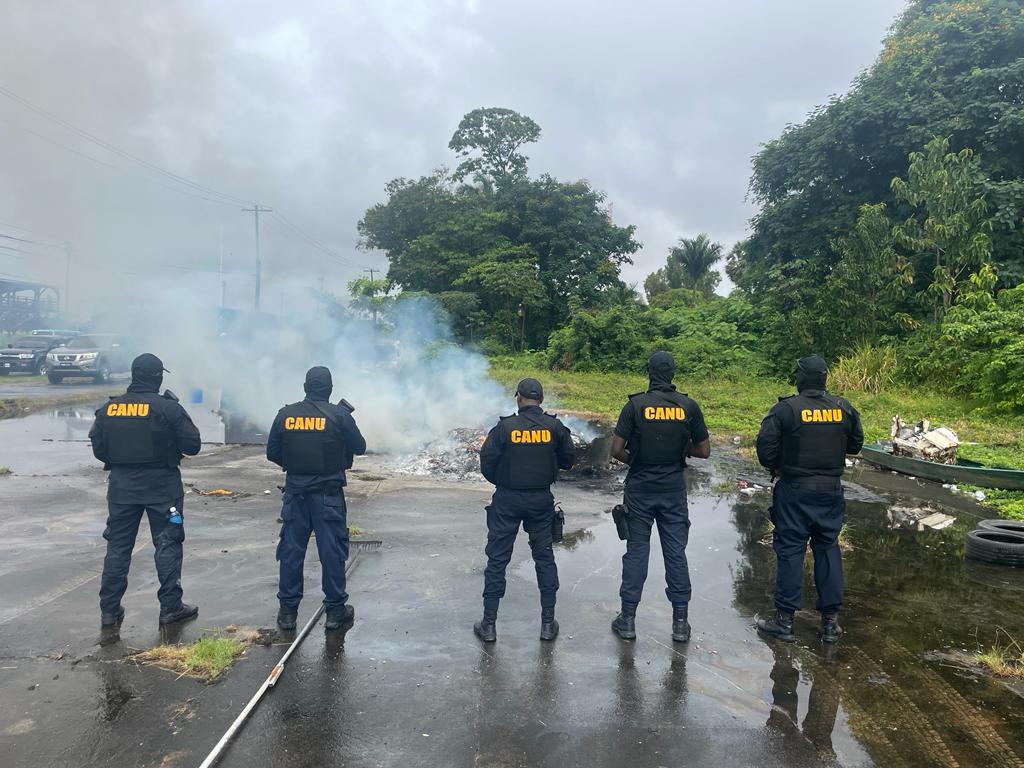
The Customs Anti Narcotic Unit, as mandated by the Government of Guyana, combats the narcotic drug trade by detecting and seizing narcotic drugs, detaining narcotic drug traffickers, and seizing narcotic drug trafficking proceeds by maintaining an effective presence at all ports of exit and entry. This mandate necessitates meticulous planning, painstaking intelligence gathering, and the efficient execution of daily operations by all departments within the Unit.
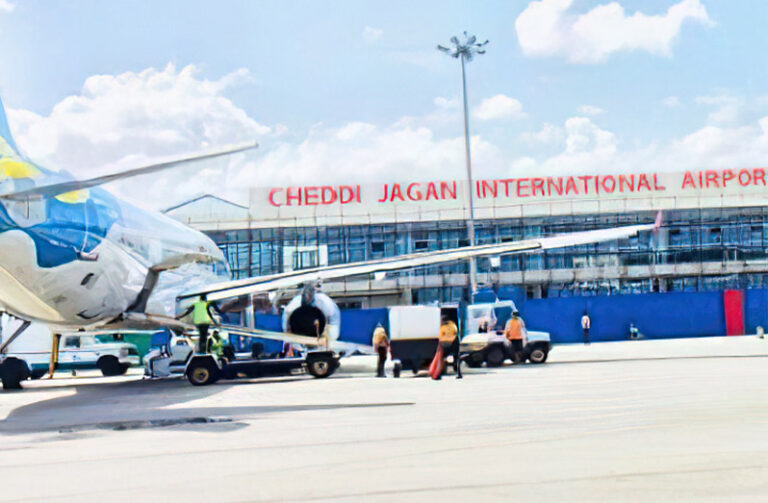
The Unit's presence at Cheddi Jagan International Airport, which is the primary international airport in Guyana is dedicated towards preventing the illegal importation or exportation of drugs and other illicit goods. Our officers employ a range of security measures, including baggage checks, cargo inspections, passenger screening, and intelligence gathering, to stop the flow of illegal drugs in and out of the country. Their presence and efforts are essential in safeguarding national security and public safety.
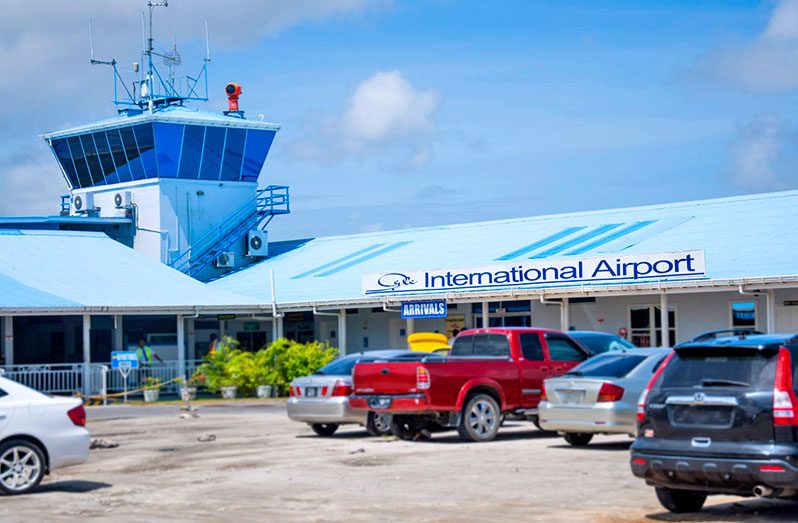
The primary goal of The Customs Anti Narcotic Unit's presence at Eugene F. Correia international airport is to intercept and prevent the illegal transportation of drugs, ultimately protecting the public and ensuring national security. The Units is also responsible for identifying and apprehending those involved in drug trafficking activities and enforcing drug-related laws and regulations.
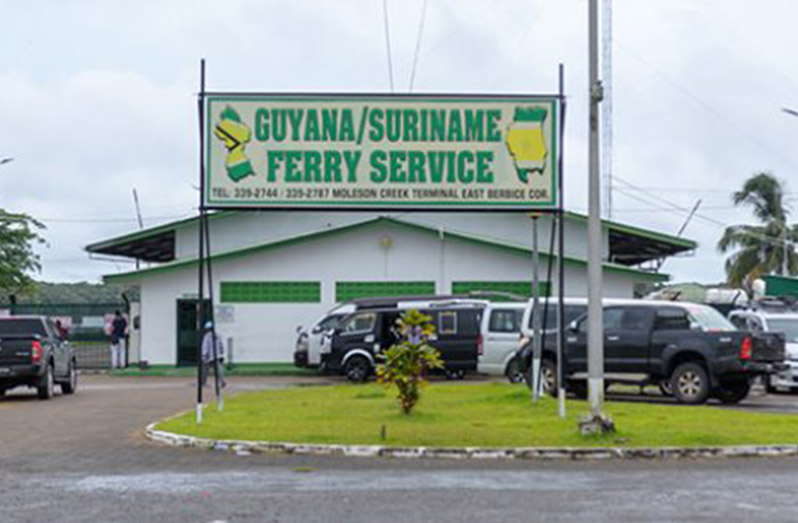
The Unit's role in this rural district, which imcompasits ravine areas, has presented unique challenges and priorities compared to urban districts. In this region,The Unit addresses drug-related issues, such as, cultivation, distribution,as well as trafficking NPS (New Psychotropic Supstances, from neighboring territories.The goal of CANU is to disrupt drug trafficking networks, deter illegal drug production, and protect the community from the negative impacts of drug abuse and distribution.
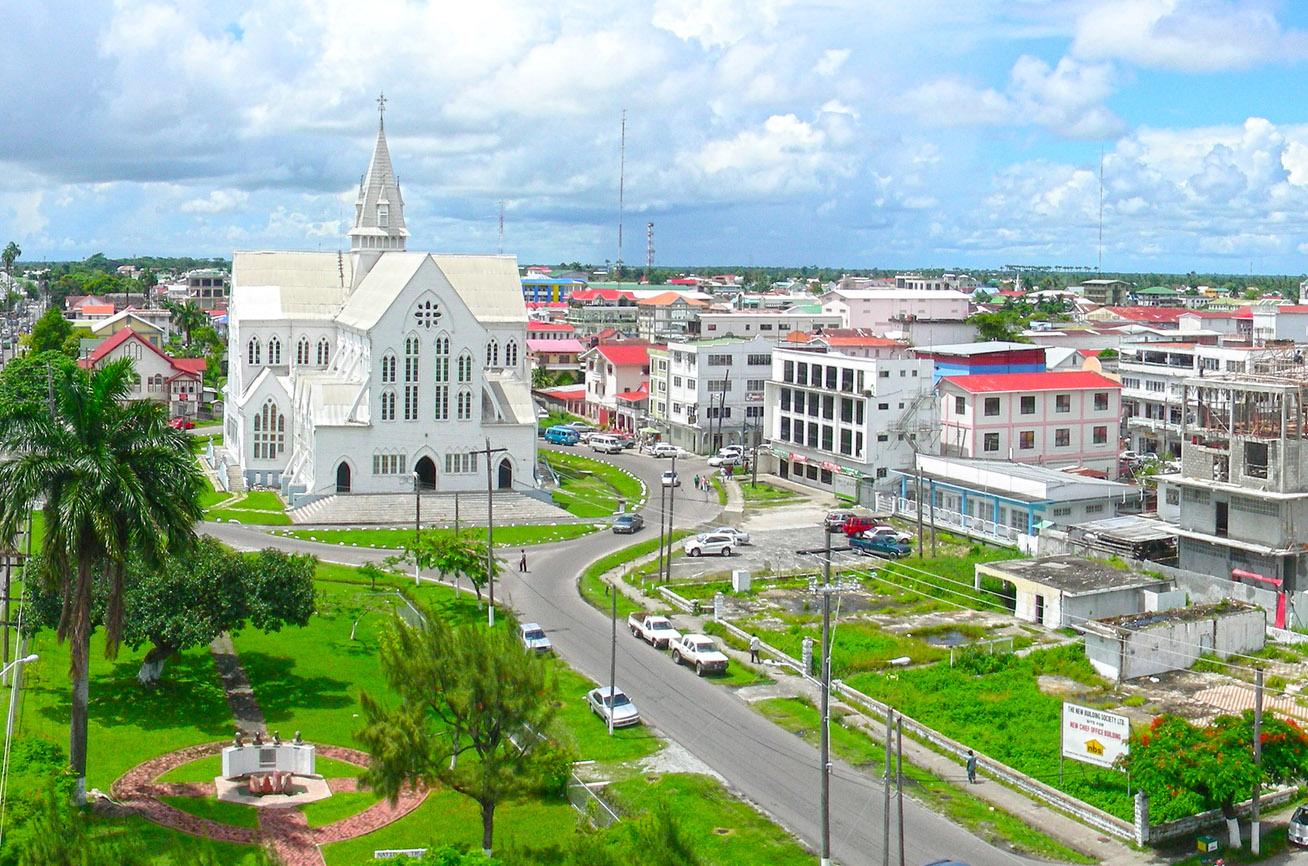
The headquarters of the Customs Anti Narcotic Unit (CANU) is situated in Georgetown, the capital city. The role of this entity is of utmost importance in guaranteeing the efficacy of drug enforcement endeavours. It serves as the central hub of the Unit, responsible for supervising and harmonising the diverse initiatives aimed at combating drug trafficking, distribution, and abuse. Additionally, it ensures that the agency functions optimally and adheres to legal protocols. The Unit's operations at this location, targets the Region's 3, 4, and 10 districts, as well as maintaining active presence at wharfs in and around the city. In addition, the unit participates in collaborative efforts such as the Container Control Programme and The Scrap Metal Unit.
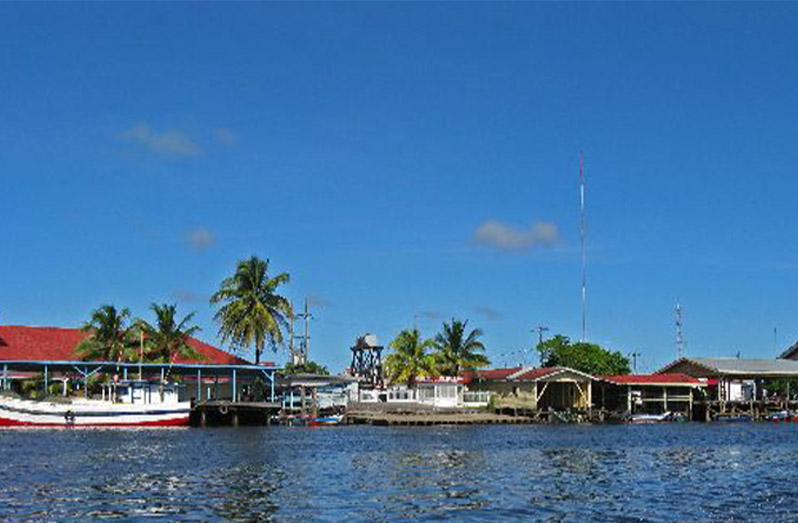
The primary emphasis and strategic objectives of the CANU in the Pomeroon-Supenaam administrative region are determined by the extent of drug-related engagements perceived within the area. The primary objective of The Unit is to effectively disrupt drug trafficking networks, deter the production and distribution of drugs, and safeguard the community against the adverse consequences associated with drug abuse and distribution. Since the area is geographically a rivine area, the Unit diligently upholds its responsibility to conduct regular rivering patrols in order to intercept any watercraft that may be suspected of trafficking illegal drugs, guns, or other contraband.
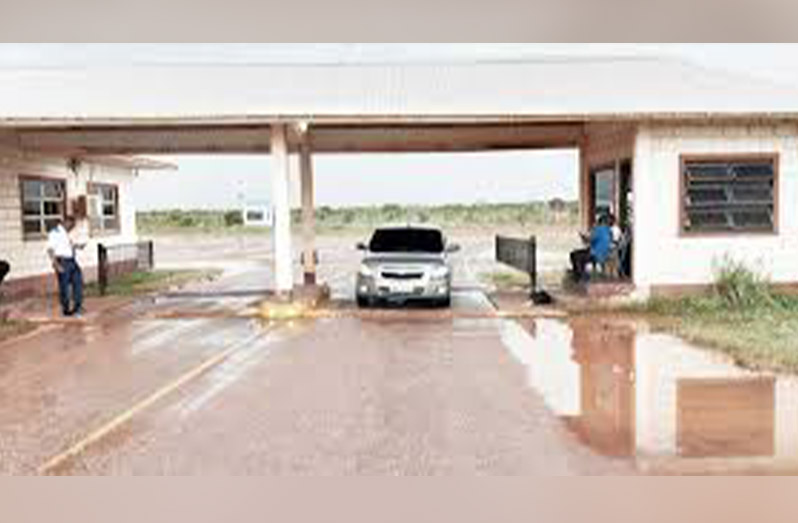
The presence of the Customs Anti-Narcotics Unit (CANU) at the Brazil/Guyana border in Lethem plays a crucial role in preventing the illicit movement of drugs, hence mitigating potential hazards to public health and safety. The Unit is tasked with the interception of illicit substances and contraband objects, firearms, as well as the apprehension of individuals engaged in drug trafficking activities. Additionally, it is responsible for the enforcement of drug-related laws and regulations at the border. The Unit also preserves a dynamic presence within the Region 9 district.
The Customs Anti Narcotic Unit (CANU) serves as the principal organisation responsible for leading the country’s endeavours in combating narcotics. In addition, The Unit serves as the National Drug Authority, under the leadership of Mr. James G. Singh, who serves as the Director of the Customs Anti Narcotics Unit (CANU), along with Mr. Rayon Samuels, the Deputy Director, functions as a pivotal entity that promotes cooperation on a global, regional, and local scale. The Unit actively participates in significant communication and coordination efforts with other countries and international organisations, encompassing both governmental and non-governmental entities. The primary objective of these partnerships will be to mitigate the dissemination of illicit substances by cooperative efforts.
The Unit’s leadership is demonstrated through its efficient execution and achievement of the mission to address drug-related crimes and the illicit drug trade. This leadership is also apparent in the Unit’s collaboration with other local agencies, not only in Supply Reduction efforts, but also in the realms of Demand Reduction, which primarily encompasses Prevention, Treatment, and Reintegration initiatives. The Unit’s robust leadership has played a pivotal role in facilitating successful community engagement, fostering trust, and acquiring valuable information. The manifestation of our commitment to addressing drug-related concerns and educating the public is clearly demonstrated through our community outreach programmes. Moreover, community’s contributions have significantly contributed to the mitigation of drug traffickers’ dominance among society at large.
The leaders have prioritised the provision of continuous training to both officers of the Unit and members of other “anti-drug agencies, with the aim of keeping them well-informed about the changing drug trends, enforcement strategies, and legal obligations. Several officers have also taken part in various international engagements, such as meetings focused on improving strategies and policies, as well as exchange programmes that provide officers with opportunities to gain exposure to tactical training, intelligence operations, cyber security, analyst systems, and various other domains. The encounters have exerted a substantial influence on the operational capability of the Unit.
The achievement of ‘Unit Excellence’ by CANU will be sustained via the commitment, professionalism, and enthusiasm of its members, in addition to effective leadership and management. The Unit will persist in combating drug-related offences in Guyana, encompassing both established and emerging cases. This endeavour will be conducted in alignment with the Government’s overarching vision, guidance, and support. The Unit will endeavour to enhance its capabilities, aiming for optimal efficiency and effectiveness, while fulfilling its designated responsibilities and concurrently enhancing national security.
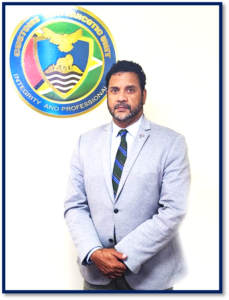


The Operations/ Special Operations Teams are critical components of The Customs Anti Narcotic Unit' efforts to combat drug-related crimes and dismantle drug trafficking organizations. The Units are tactical teams within drug enforcement agencies that are trained and equipped to handle high-risk and complex drug-related situations.
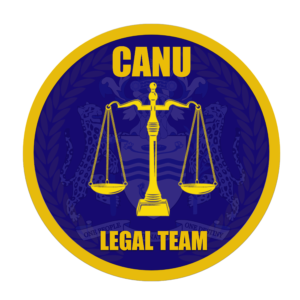
The Legal team is a specialised group of legal professionals who work in conjunction with CANU to provide legal support, guidance, and expertise in matters related to drug enforcement and drug-related crimes. These legal teams are crucial in ensuring that drug enforcement activities adhere to the law and are conducted in a manner consistent with legal and constitutional standards.
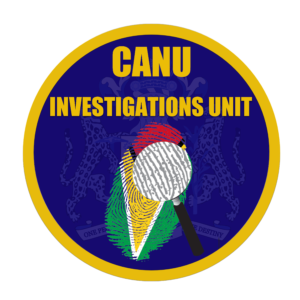
The Investigation team is a specialized group within CANU that focuses on conducting investigations into drug-related crimes, trafficking networks, and activities. This team play a crucial role in gathering evidence, identifying suspects, and building cases against individuals and organizations involved in the illegal drug trade.
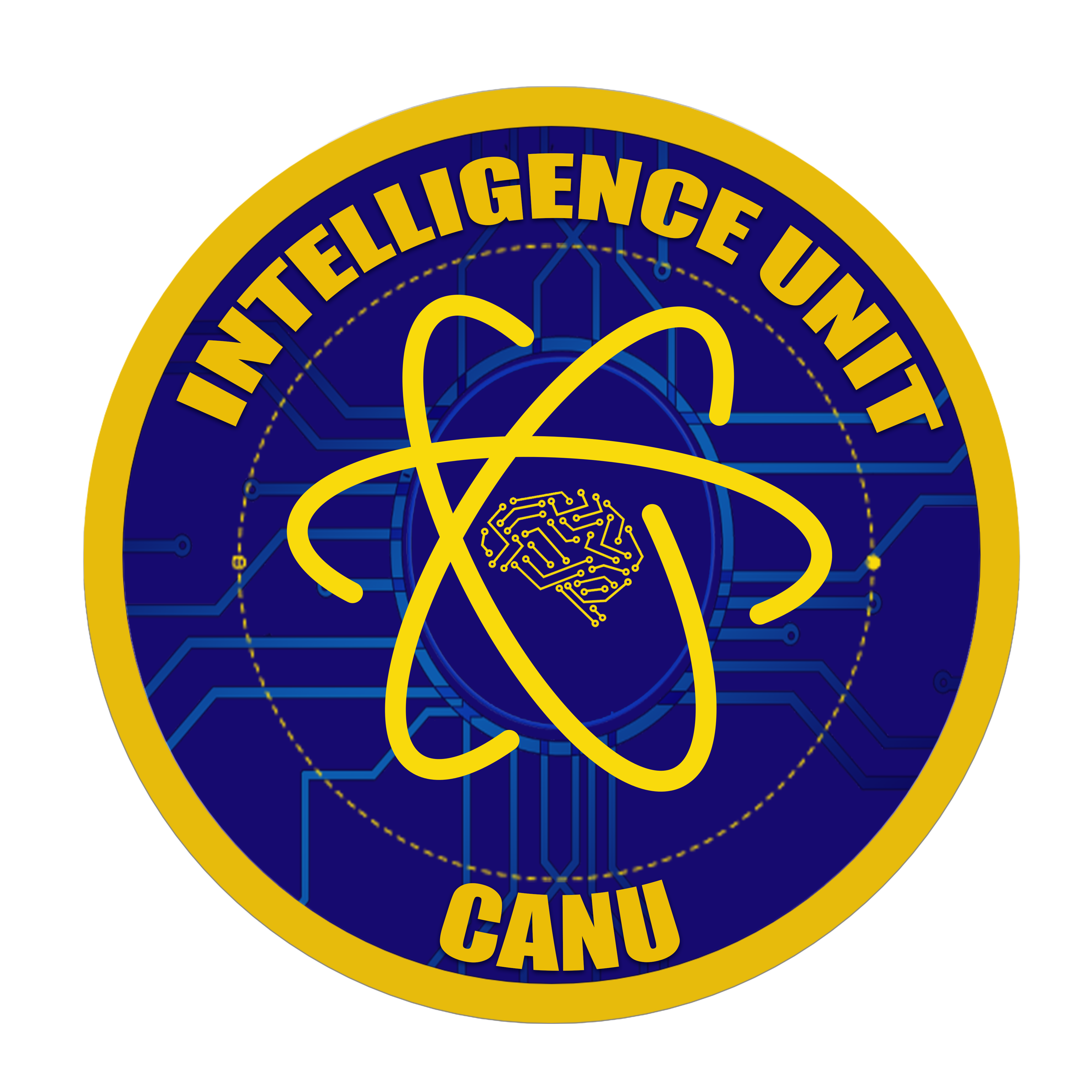
The Intelligence Unit that focuses on gathering, analyzing, and disseminating intelligence related to drug trafficking, production, and distribution.
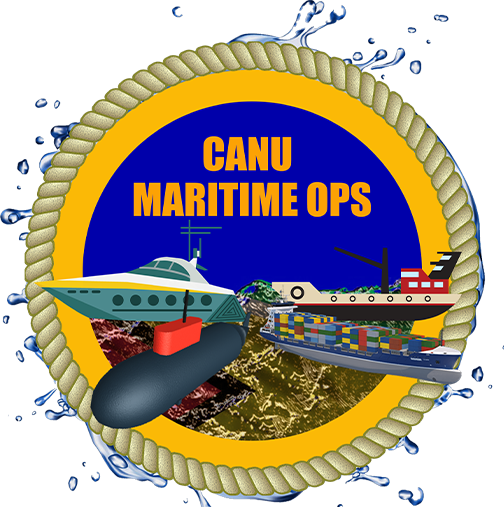
Maritime operations functions to intercept, investigate, and combat drug trafficking activities occurring on or through bodies of water, including oceans, seas, rivers, and coastal areas. These operations are essential in preventing the illegal smuggling of drugs via maritime routes. These operationts are often executed in collaborations with the Guyana Defence Force (GDF) Coast Guard.
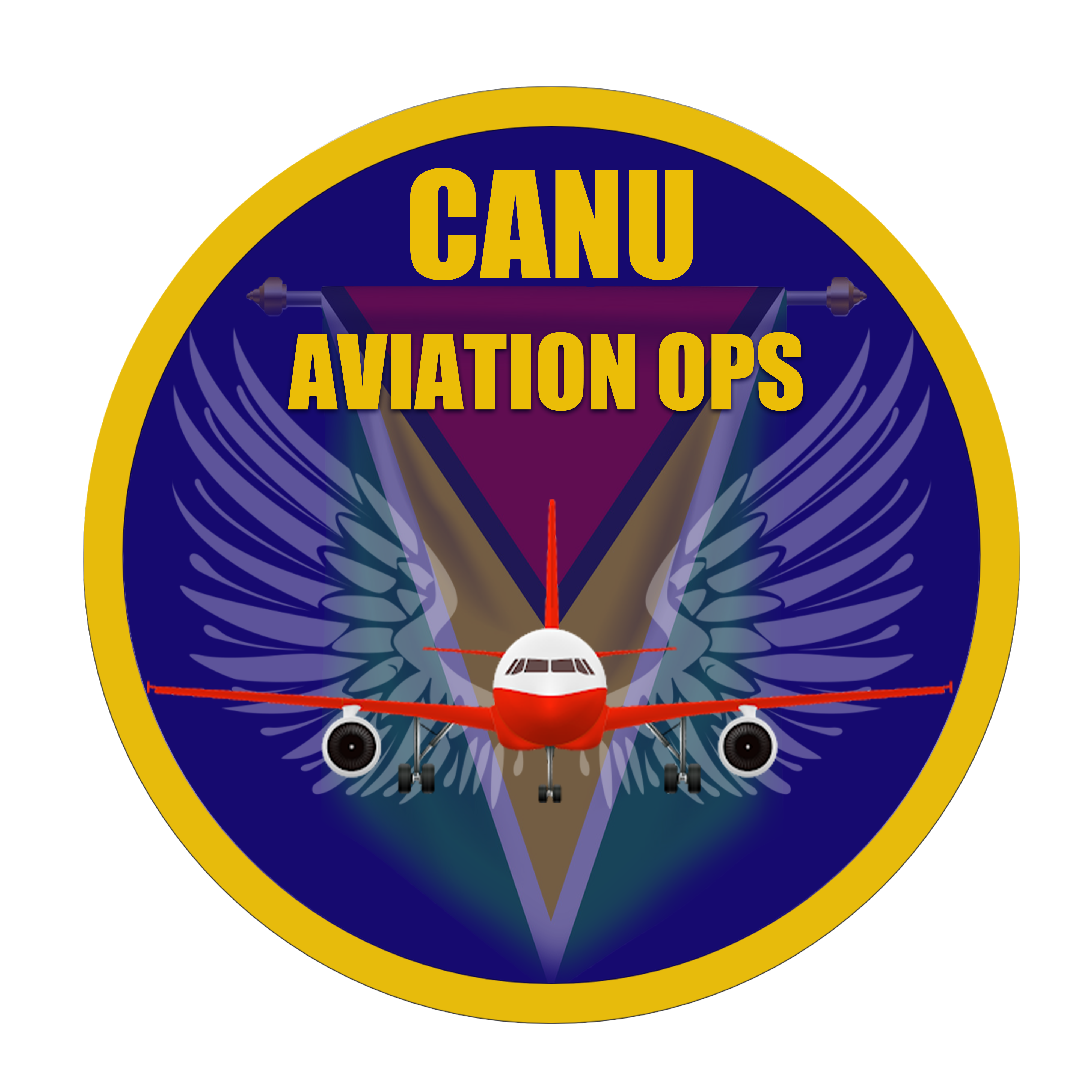
Aviation operations deals with the monitoring of aircraft to combat drug trafficking and related activities. These operations are essential in monitoring and interdicting drug smuggling operations that involves the use of aircraft to tranship narcotics. This Unit operates specifically at the country's International Airports.
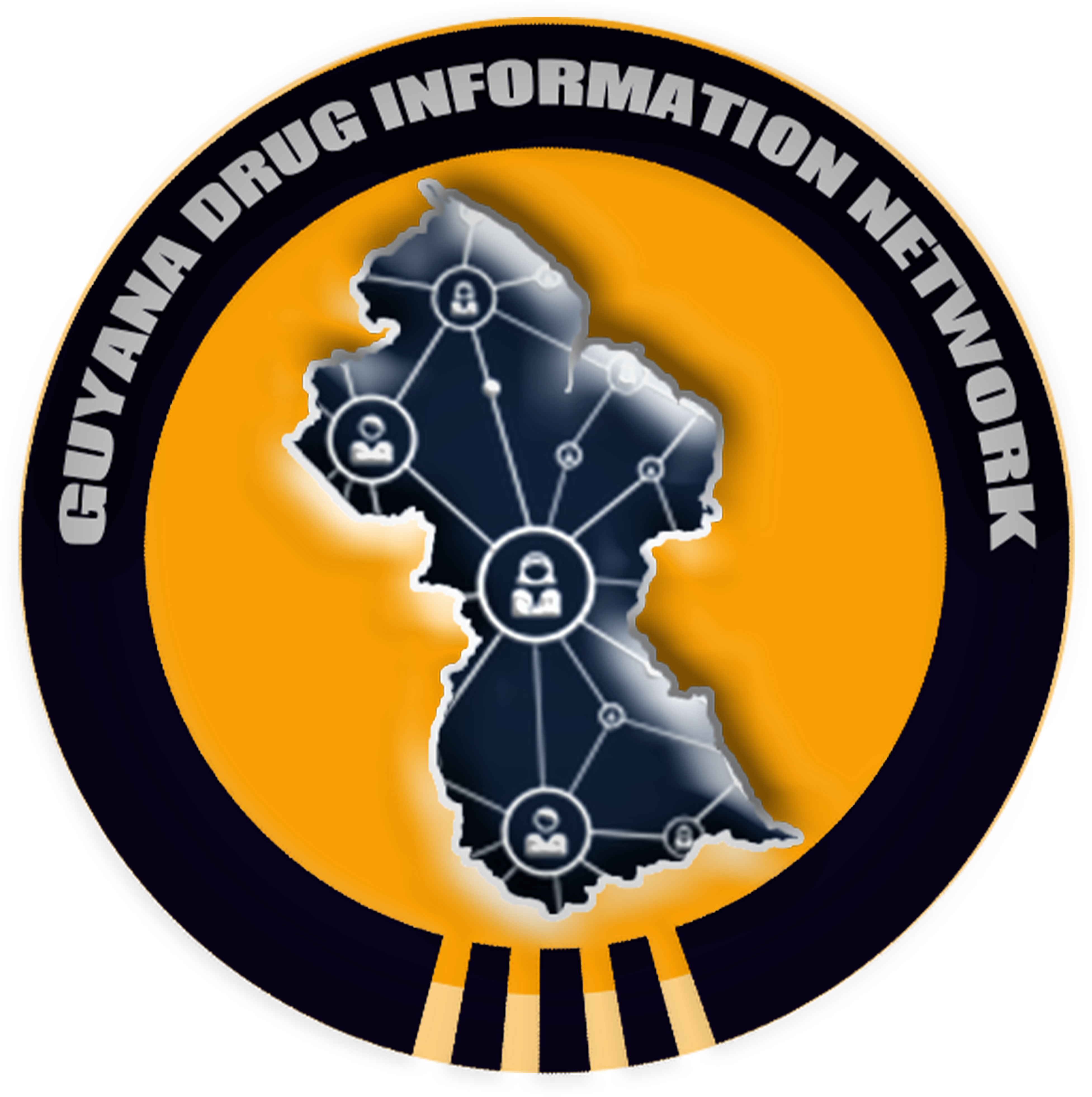
The Guyana Drug Information Network (GUYDIN) is a system or organization established to collect, manage, and disseminate information related to drug use, abuse, trafficking, and related issues. Such networks often involve collaboration among various stakeholders, including government agencies, law enforcement, healthcare providers, treatment centers, research institutions, and public health organizations. The primary goal of a Drug Information Network is to gather, analyze, and share data and information to better understand and address drug-related challenges.
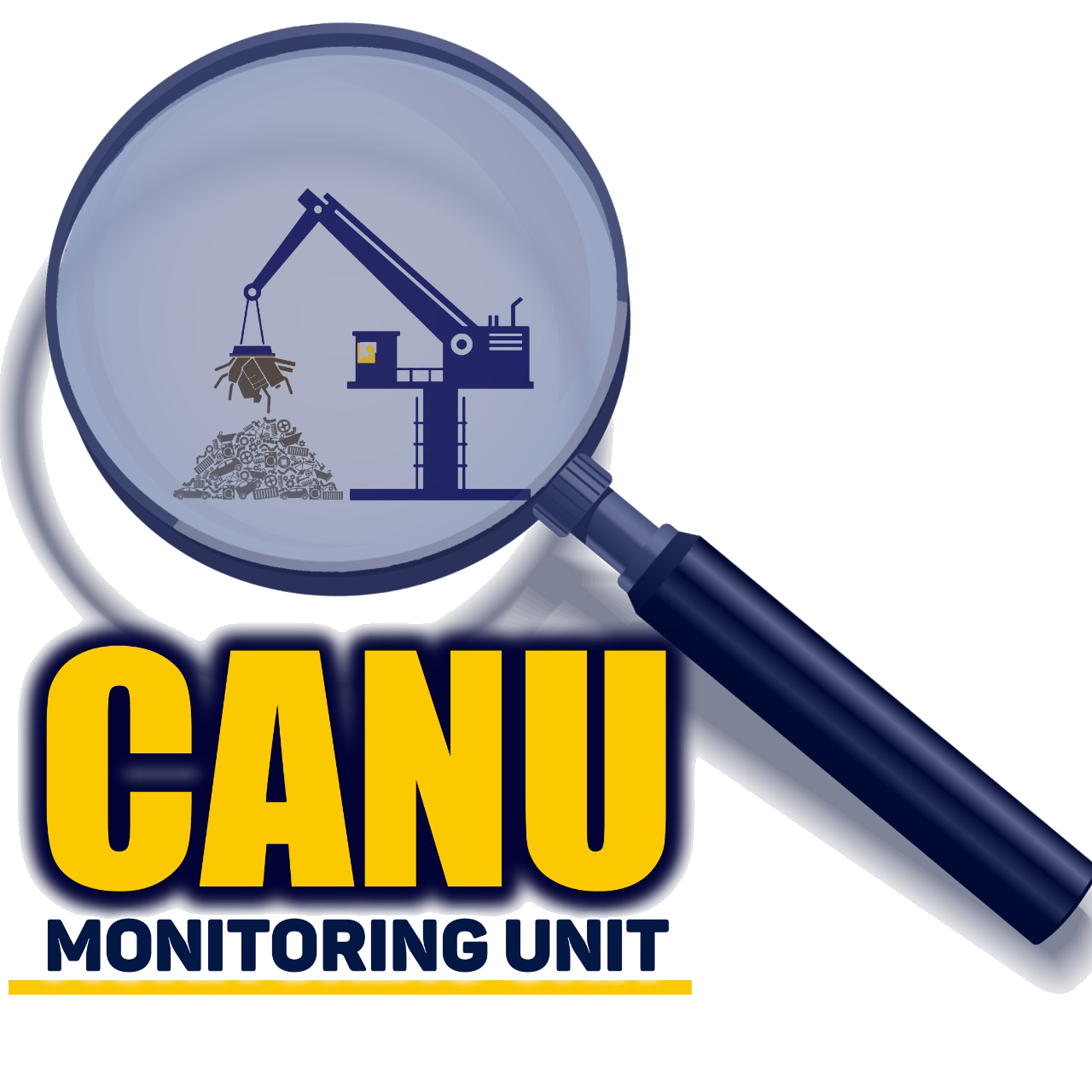
The Monitoring Unit within the CANU (Customs Anti Narcotics Unit) collaborates with many authorities, including the Scrap Metal Unit, to oversee the loading of containers by Scrap Metal Traders. The primary objective of this partnership is to prevent the concealment of illicit substances within these containers. This Unit also operates in collaboration with SEACOP, a multi-agency strategy coordinated by the UNDOC. The primary objective of SEACOP is to enhance trust and confidence between the public and various agencies. Specifically, this Unit is responsible for conducting searches on vessels entering Guyana.

The Container Control Programme encompasses the collaboration of the Customs Anti Narcotic Unit (CANU) and the Guyana Revenue Authority (GRA). The primary objective of this collaborative endeavour is to locate and apprehend illicit substances, precursor substances, guns, endangered species, hazardous materials, and prohibited items within maritime containers intended for transportation. The presence of illicit cargo poses a significant risk to global security, public health, and international trade. The primary objective of the UNODC-WCO Container Control Programme (CCP) is to enhance risk management, bolster supply chain security, and facilitate trade inside seaports, airports, and land border crossings. This objective is achieved by the prevention of the international transportation of illicit commodities.